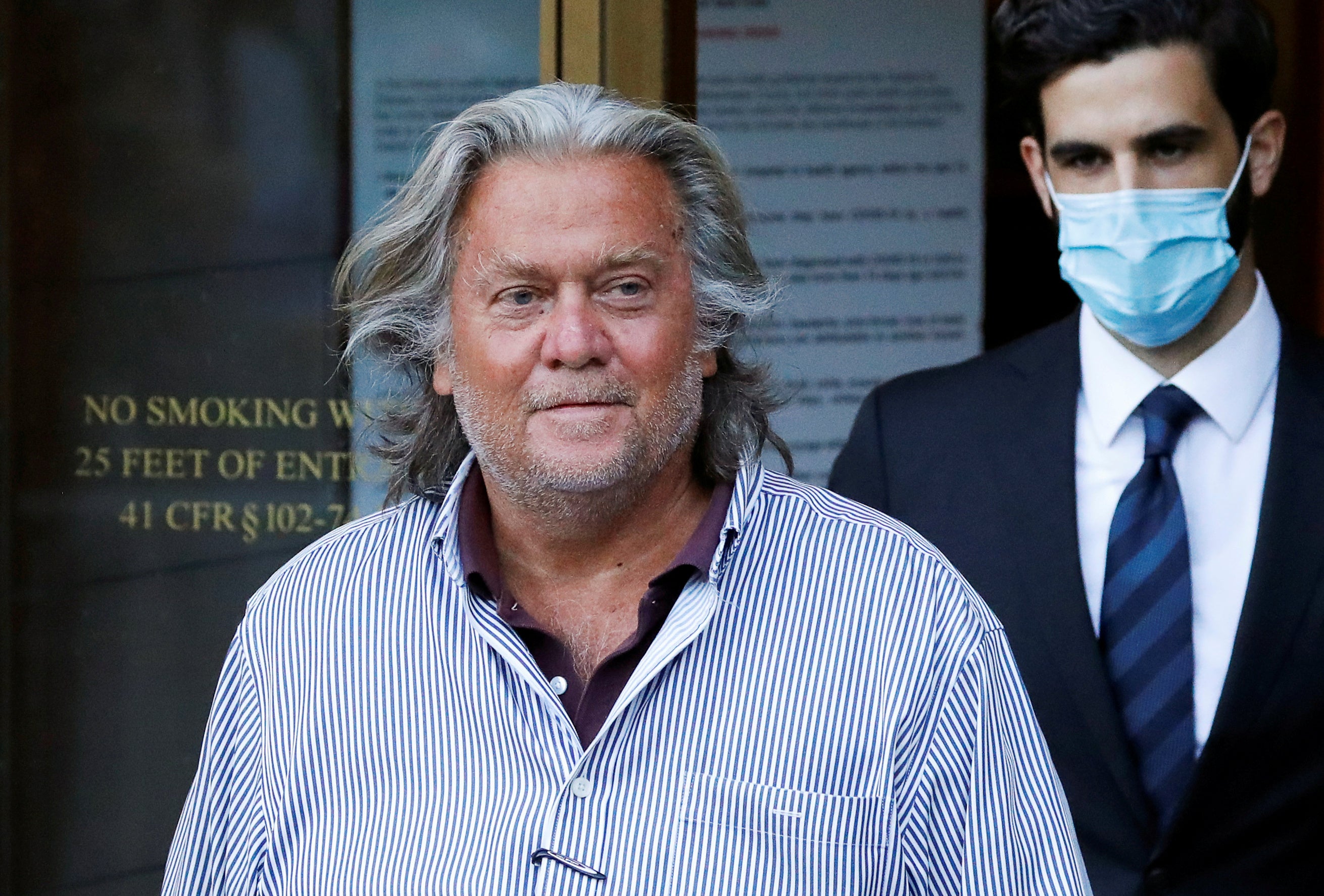Steve Bannon loses court battle to start political academy in Italian monastery
The organisation sought to use an 800-year-old religious site for its school

Your support helps us to tell the story
From reproductive rights to climate change to Big Tech, The Independent is on the ground when the story is developing. Whether it's investigating the financials of Elon Musk's pro-Trump PAC or producing our latest documentary, 'The A Word', which shines a light on the American women fighting for reproductive rights, we know how important it is to parse out the facts from the messaging.
At such a critical moment in US history, we need reporters on the ground. Your donation allows us to keep sending journalists to speak to both sides of the story.
The Independent is trusted by Americans across the entire political spectrum. And unlike many other quality news outlets, we choose not to lock Americans out of our reporting and analysis with paywalls. We believe quality journalism should be available to everyone, paid for by those who can afford it.
Your support makes all the difference.Steve Bannon's plans to open a Catholic political academy in an Italian abbey have been dashed after the former strategist lost a legal battle for access to the site.
The Dignitatis Humanae Institute, which Mr Bannon backs, lost its bid to operate out of an 800-year-old Italian monastery south of Rome.
The Council of State ruled against the organisation on Monday, according to Reuters.
The DHI has been attempting to access the site for years, but has been tied up in legal battles with the country's culture ministry, which owns the building. Civic and environmental organisations opposed to the DHI also joined in the fight to prevent the DHI from operating out of the religious structure.
Mr Bannon was helping to develop the curriculum for the institute.
Italy's culture ministry originally agreed to a 19-year lease with the school, but rescinded that offer in 2019 over what it described as violations of contractual obligations. The DHI appealed that decision, claiming it was a political decision, and won its appeal.
Populist right-wing Italian support for the project grew during Mr Trump's presidential administration.
However, support for the project among Catholics has waned over the years. American Cardinal Raymond Burke, formerly a major supporter of Mr Bannon, rescinded his support for the project after the former strategist voiced his intention to release a film about homosexuality in the Vatican.
Mr Bannon has remained a controversial figure in conservative politics. He rose to notoriety after taking over Breitbart, where he turned the outlet into the central news source for alt-right ideology.
After he left the site, he went on to work in Mr Trump's administration.
Eventually Mr Bannon left and was later granted a pardon from Mr Trump after he was charged with swindling the president's supporters by allegedly stealing donations intended for use in building the border wall.
He also came under fire last year when he said Trump administration officials he viewed as disloyal - like Dr Anthony Fauci and FBI director Chris Wray - should have their heads mounted on pikes outside the White House as a warning to other bureaucrats to fall in line with the president's objectives.
Mr Bannon's political ideas were largely shaped by a book called "The Fourth Turning," which argues that historical periods are cyclical. It is likely that Mr Bannon's political curriculum would have included his interpretation of the book's message.





Join our commenting forum
Join thought-provoking conversations, follow other Independent readers and see their replies
Comments